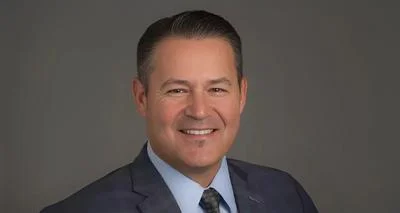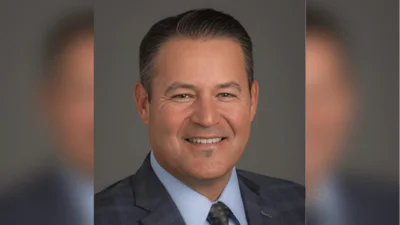Dr. James C. Schmidt Chancellor | Official website
Dr. James C. Schmidt Chancellor | Official website
The clinic’s summer program has been operating for 15 years, assessing reading skills for children in grades 1-8 and delivering evidence-based, research-supported interventions. A grant from the Office of Research and Sponsored Programs helps sponsor the summer program with funding for student stipends and materials. A math program also operates in the summer.
This summer’s reading program has 21 children who come into the clinic in the Human Sciences and Services building every weekday for three weeks.
“The gains over the years have been pretty remarkable,” says Dr. Michael Axelrod, professor of psychology and director of the Human Development Center. “We talk a lot about a ‘summer slide’ in academics. What we aim to do is try to reverse that so that kids start school in September with at least the same skill level or we try to boost them up a bit.
“In the 50 minutes we have a kid in a session, they are probably doing more instruction-based reading than they might in a week or two in school. And they’re getting one-on-one, individualized attention so that feedback can be immediate and meaningful.”
The intervention services are provided by Blugold students under the supervision of UW-Eau Claire faculty such as Dr. Melissa Coolong-Chaffin, professor of psychology and co-director of the Academic Intervention Clinic.
“We are seeing so many kids who have needs who aren’t getting really good support in schools and parents are desperate to find something – summer programming that is really intensive and focused is hard to come by in the area,” Coolong-Chaffin says. “They are here because they need practice, they need instruction. What we do is backed by research, we collect a lot of good data, they get tons of attention, they get to have fun and they get to have a positive experience with something that they struggle with.”
Katy Christianson brought her daughter Lydia to the Academic Intervention Clinic this summer after her teacher suggested the girl wasn’t at her grade level despite reading every day. Lydia meets with Blugold psychology graduate student Bryn Hermanson each week.
“I think they are doing great,” Christianson says. “We love Bryn; they’re a good match. We want her to love reading and not think it’s a struggle.”
Hermanson, who plans to be a school psychologist, is in her first summer at the clinic and is collecting data about reading comprehension strategies for her capstone project. Hermanson has enjoyed working with Lydia and two other children to develop their reading fluency and comprehension.
“It’s definitely rewarding, I think, not just for me but for them,” Hermanson says of the young students. “They get to know someone who is helping them read and they get to improve their reading skills. I’m learning from them how they are reading, what works for them.”
During the school year, 20 undergraduate students go into Eau Claire schools to work with about 60 students in elementary, middle and high schools, with five graduate students receiving experience coordinating aspects of the program.
Undergraduate Sammy Whyte worked in the high school reading program during the 2023-24 academic year and says working on reading skills with younger children this summer has been different.
“It’s been really fun and educational on both sides,” Whyte says. “It’s helping kids learn more about reading and developing those skills but it’s helped me develop skills working with children, especially high-energy kids. They’re always excited to come in and I try to match that energy."
A book compiled by Axelrod, Coolong-Chaffin, and Dr. Renee Hawkins was recently published by Routledge Press titled "Reading Intervention Case Studies for School Psychologists," outlining evidence-based interventions based on Blugold students' work at the clinic.
“The idea for the book came from our students working with kids in the community,” Axelrod says.
Coolong-Chaffin calls it a good resource with proven strategies relevant under Wisconsin's new early literacy law Act 20 requiring schools to identify students needing individualized support.
“We know that if kids are not reading by third grade they have poorer outcomes overall – higher dropout rates... so if we can close that gap earlier it's very important,” Coolong-Chaffin concludes.




 Alerts Sign-up
Alerts Sign-up